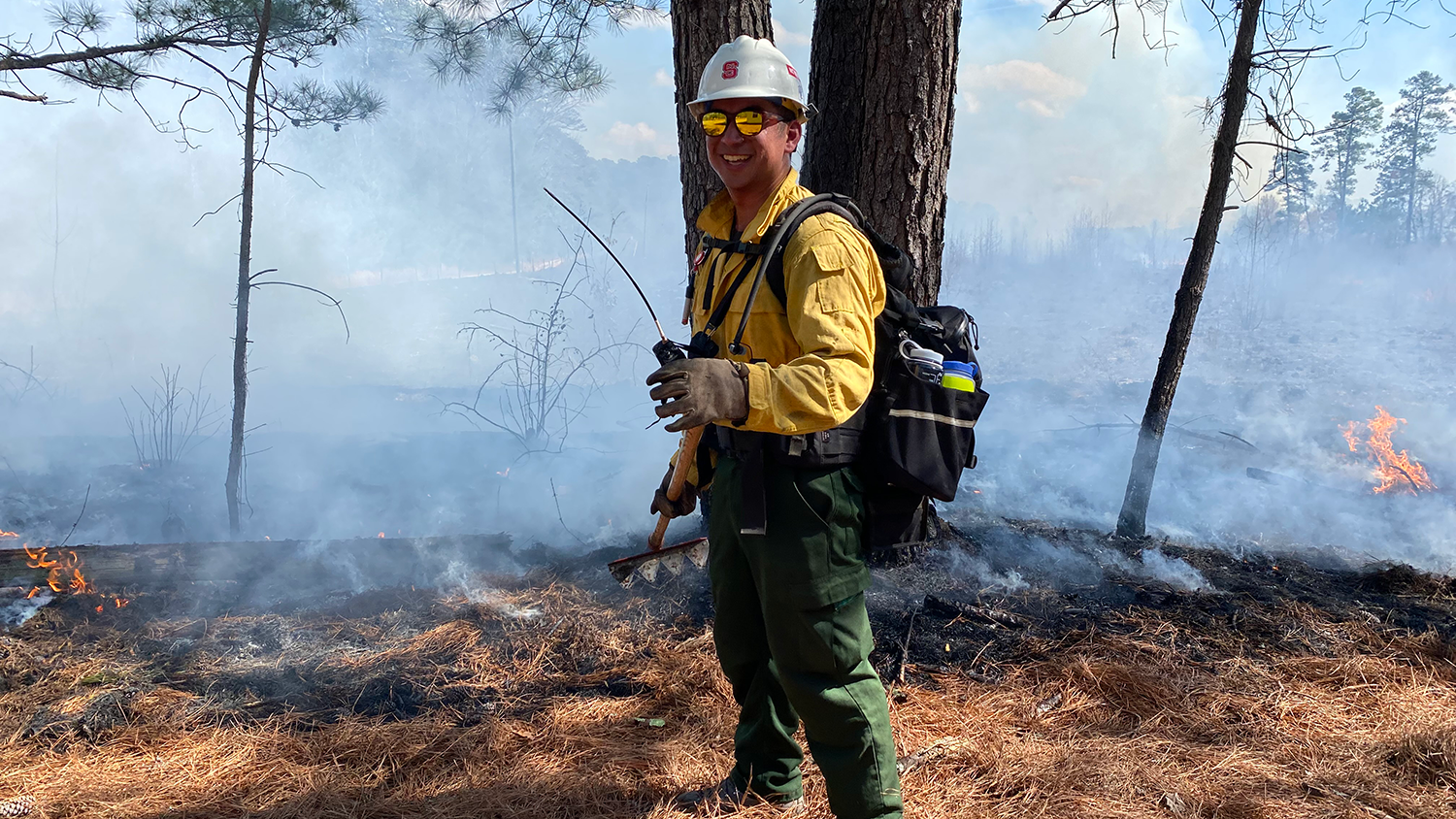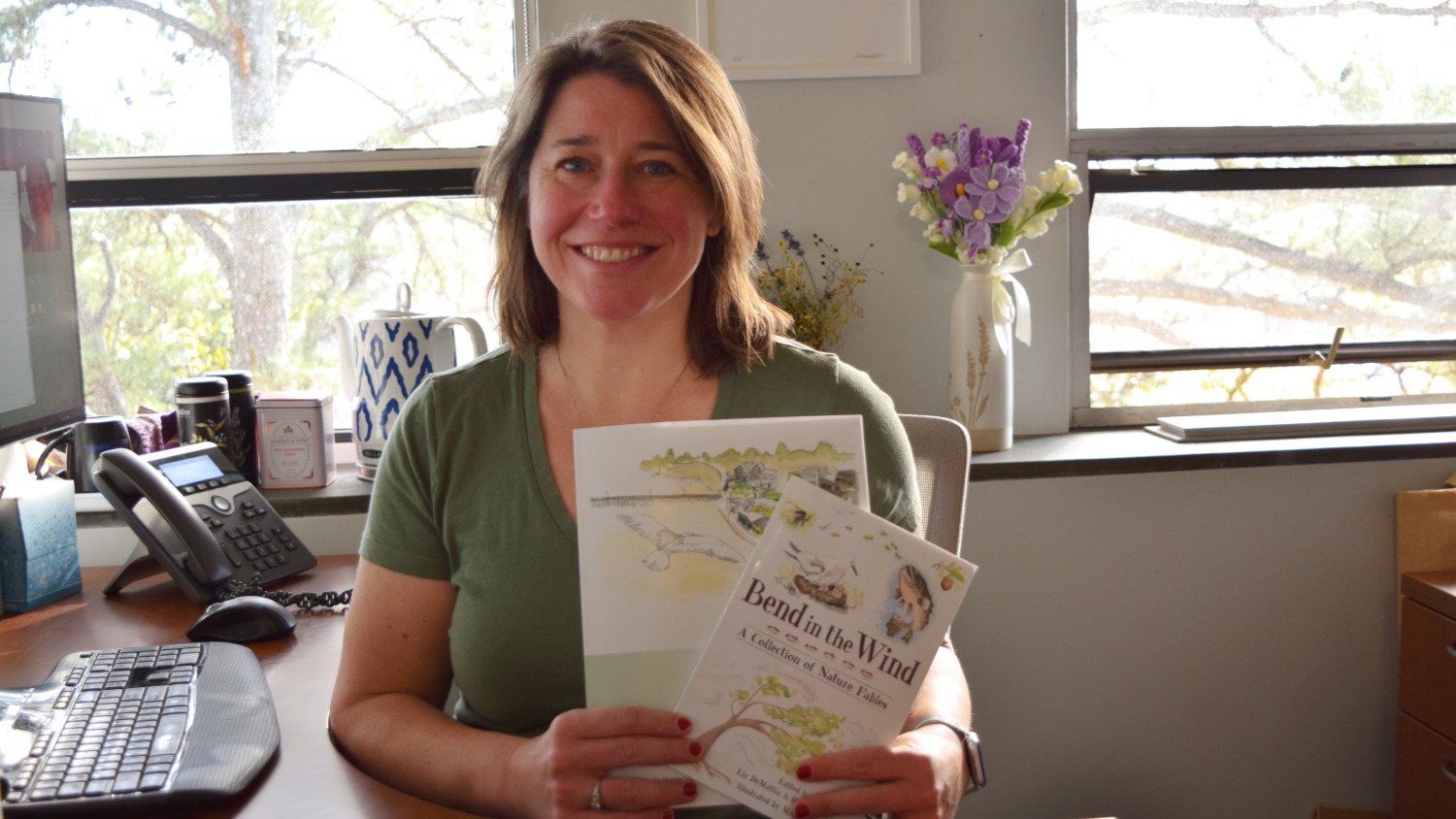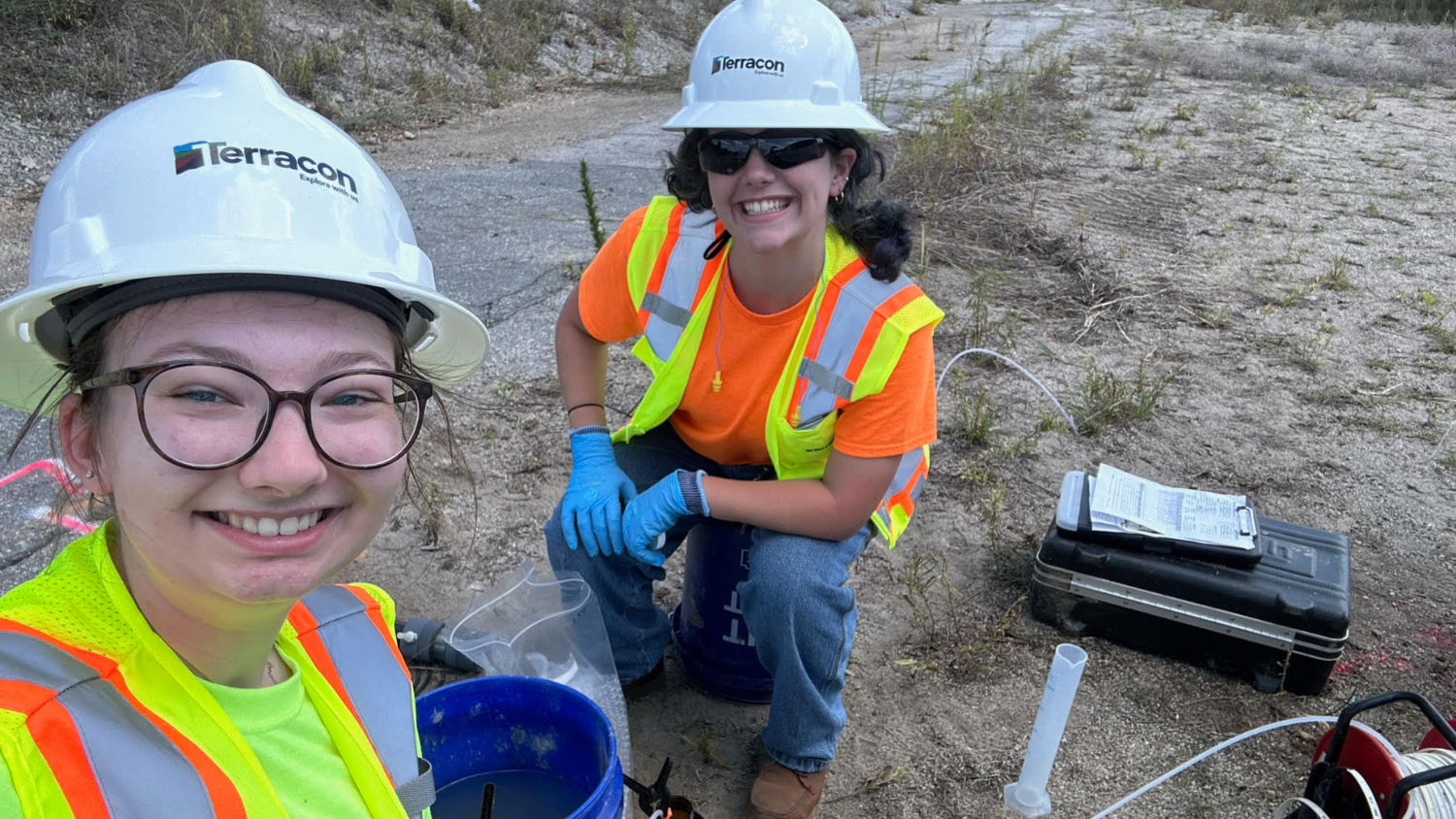Meet Extension Forestry Associate Elliot Nauert

Elliot Nauert recently joined the NC State Extension Forestry team as an extension associate in prescribed fire and fire science. He primarily oversees outreach, coordination, and education efforts aimed at promoting prescribed fire throughout the southeastern United States.
“I help different groups of landowners and managers collaborate, develop fire-related trainings, and translate fire science for different audiences through the Southern Fire Exchange,” Nauert said.
The Southern Fire Exchange is a collaborative partnership between NC State and several other organizations that works to increase the use of available fire science, facilitate discussions about the relevance of research results and future research needs, and connect fire managers and researchers.
Nauert, who graduated with a bachelor’s degree in psychology from the University of North Carolina at Asheville in 2016, previously worked as a research assistant for the Fire Chasers team at NC State and as a forestry technician for the U.S. Department of Interior at Sequoia and King’s Canyon National Parks where he specialized in prescribed fire and wildlife management. He is currently pursuing a doctoral degree in the Department of Psychology at NC State.
We spoke with Nauert to learn more about his new role with the NC State Extension Forestry team and how he hopes to make an impact in the field of natural resources through his research. Check out the Q&A below.
What excited you about this new role with Extension Forestry?
I was most excited by how well the topics of the job aligned with my interests (e.g., fire, training, technology, applied science) and for all of the ways it would challenge me to build new skill sets (e.g., writing grants, coordinating working groups). I was also excited to settle down back home in North Carolina after years of bouncing back and forth between here and California for fire seasons.
What is the focus of your doctoral research?
My research is about what makes an expert, an expert. Often, expertise is less about how much a person knows, and more about how that knowledge is organized in their mind. I look at ways to elicit expert knowledge, measure differences between individuals in the way that knowledge is organized, and incorporate that all into training programs. Oh, and I mostly look at this in the context of wildland firefighters.
What is most exciting about your research?
The most exciting thing for me is the prospect of making new training programs for wildland firefighters that are more engaging and effective, which in the big picture would make their work less dangerous.
What do you hope to achieve with your research?
I would like to help wildland fire training professionals think about how information is presented in training and job aids. People that work in uncertain environments are constantly battling information overload, so we can’t improve their performance by simply adding more knowledge. I hope we can better prepare firefighters to quickly ignore unimportant information and make safe decisions based on what’s left.
How do your past experiences with wildfire management inform your current work?
I worked seasonally off-and-on as a wildland firefighter at Sequoia National Park starting in 2009. I avoided major injury on the job, but a lot of that is due to pure luck. I’ve seen plenty of close calls and I know plenty of better firefighters than myself who did suffer significant injury. No matter what the firefighting job looks like, it will always be demanding and risky for the folks that are actually digging fireline. However, I still see a lot of ways the job can be improved, and I think I fill a pretty unique niche of experience to help us work on them.
Is there anything about you that your colleagues might be surprised to learn?
I mostly grew up in the mountains in western North Carolina and some of my hobbies reflect that: hiking, mountain biking, and playing the banjo. I also like riding and working on motorcycles.
- Categories:


